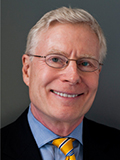
 By Charles C. Haynes, Director of the Religious Freedom Center of the Newseum Institute
By Charles C. Haynes, Director of the Religious Freedom Center of the Newseum Institute
At an historic gathering in Marrakesh, Morocco on Jan. 27, more than 300 Muslim leaders – including many of the world’s most eminent Islamic scholars and clerics – declared that the religious freedom of minority faiths must be protected in Muslim-majority nations.
The Marrakesh Declaration comes at a time of unprecedented persecution of Christians and other minority groups by extremists acting in the name of Islam in the Middle East, Africa and South Asia.
Pushing back against false and dangerous narratives about Islam, the Muslim leaders called on the entire Muslim world to reaffirm the principles of the Charter of Medina, a constitutional contract between the Prophet Muhammad and the people of Medina, “which guaranteed the religious liberty of all, regardless of faith” 1,400 years ago.
To counter extremism and promote freedom, the declaration calls for a “broad movement for the just treatment of religious minorities in Muslim countries and to raise awareness as to their rights.”
Morocco, the host country for the conference, is often cited as an example of an Islamic state that protects the rights of Christians, Jews and other religious minorities. Some of the other Muslim-majority nations, however, are badly in need of the reforms called for in the declaration: Citizenship that is “inclusive of diverse groups” and initiatives, including education, that promote understanding across religions.
By sending a message to government leaders who ignore the true teachings of Islam as well as to terrorist groups that pervert the meaning of the faith, the Marrakesh Declaration stakes out an authentically Muslim position in support of religious freedom.
“Enough bloodshed,” said Shaykh Abdallah bin Bayyah, a key organizer of the conference and president of the Forum for Promoting Peace in Muslim Societies. “There is a sickness right now in the world but we have treatments for it within Islam.”
In other words, Islam is not the cause of extremism; Islam offers an answer to it. Now the challenge facing Muslim scholars and religious leaders will be to translate the declaration into societal reforms and peace efforts that effectively counter extremist movements, especially among the young.
The Marrakesh Declaration has received scant media attention in the United States. Positive news about Islam – including the many earlier statements and actions of Islamic leaders to fight extremism – rarely makes headlines. But Americans should take heed of the message coming out of Morocco.
At a time when Islam is co-opted by terrorists and demonized by anti-Muslim groups, Americans need to hear the true voice of Islam. To understand why this matters, consider that hate crimes against Muslim-Americans and mosques across the U.S. have tripled since the terrorist attacks in Paris and San Bernardino, California, last fall, according to a study conducted by researchers at California State University.
Ignorance and fear of Islam breed anger, hate and violence. In recent months, a young girl wearing a hijab was attacked by classmates, a Muslim cab driver was shot by a passenger who was angry about ISIS, a Muslim woman at a car wash was threatened by a man at knifepoint – and the list goes on.
Just as the KKK and White Supremacist groups – which claim to be based on ”Christian principles” – are not labeled “Christian extremists” by most Americans, so ISIS and other terrorist groups who act in the name of Islam should not be given the label “Islamic.”
If we can tell the difference between authentic Christianity and perverted versions of the Gospel, so we should learn to tell the difference when it comes to Islam. Our ability to work with one another, defeat our common enemy, and uphold religious freedom hangs in the balance.
–
The Hollman Report will return in the March edition of Report from the Capital.
From the February 2016 Report from the Capital. Click here to read the next story.




